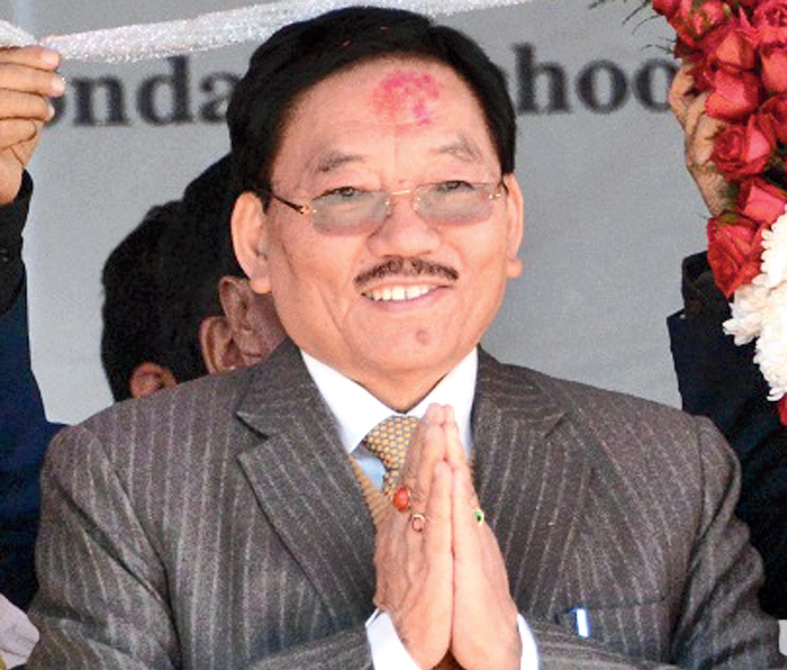On a day the Union government approved a proposal to grant Scheduled Tribe status to six other backward class (OBC) communities of Assam, Sikkim chief minister Pawan Chamling sounded sceptical of the prospects of the Centre giving similar tag to the 11 Gorkha communities in the Himalayan state.
Chamling suggested that the three-member team of the Union tribal affairs ministry headed by joint secretary Meera Ranjan Tshering, which arrived here on Tuesday and held consultation with the representatives of the 11 communities on their demand, was a hogwash.
“The central government had formed such a committee in the past, but there has been no action till date. No report has been submitted. They (the committee) are roaming here before the election, doing a routine job,” the chief minister said, adding that he saw no point in meeting the panel members.
The 11 Nepali-speaking communities seeking tribal status are Rai, Mangar, Gurung, Thami, Bhujel, Jogi, Sanyasi, Giri, Newar, Khas and Dewan (Yakha). Similar demand has also been voiced in the neighbouring Darjeeling hills. The government of Bengal, too, backs the demand.
The tribal affairs ministry had set up a committee under Ashok Pai, a joint secretary, in the first week of April 2016 to examine the proposal to declare the 11 communities in Bengal and other states Scheduled Castes.
The committee was given three months to submit its report. But before Pai could examine the matter, he was transferred to the National Commission for Scheduled Tribes.
The panel was later reconstituted under another senior officer, Vishu Maini, and is now headed by Tshering.
Tshering will also meet those from Darjeeling demanding the tribal status during its visit. “The team will either meet the Darjeeling delegations in Rangpo or Melli. They will not travel to Darjeeling,” said a source in the state government.
Tshering, however, refused to talk to the media.
According to the norms, ST status is granted to communities through amendments to the list of Scheduled Tribes. The Centre moves a bill in Parliament to amend the list. Usually, the state government recommends the inclusion of a particular community in the ST list. The tribal affairs ministry seeks the opinion of the registrar general of India and the National Commission for STs, after which the bill is tabled in Parliament.
In recent times, the chief minister has made public his disappointment with the Centre and Prime Minister Narendra Modi for allegedly turning a deaf ear to many demands of Sikkim, including granting of ST status to the 11 communities. The ruling Sikkim Democratic Front is part of the BJP-led National Democratic Alliance and North East Democratic Alliance (NEDA).
Chamling, however, said there was no question of his party quitting the NDA and NEDA.
“We became part of the NDA and NEDA after the elections (in 2014). We have never fought an election in an alliance and we will not do so this time either. Our two MPs continue to support the NDA and the central government,” he said.











